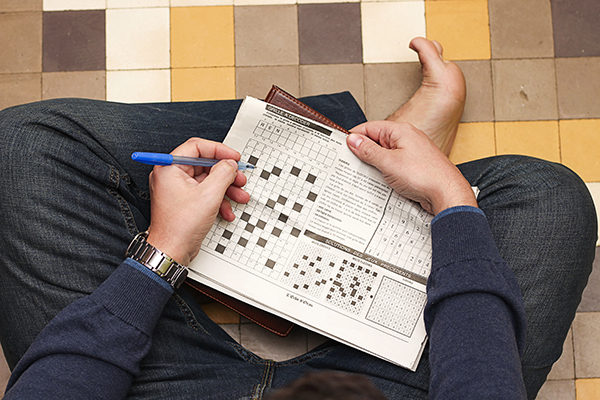Crossword-loving puzzleheads have better brain function – even later in life
11/18/2019 / By Darnel Fernandez

With the rise of online media, many people consider newspapers to be a dying medium. However, hidden inside your local paper could be the key to a younger brain. Crossword puzzles and Sudoku are often associated with older adults who still prefer to read newspapers. Now, recent evidence suggests that doing these puzzles regularly could lead to better brain health later in life.
Two linked papers published in the International Journal of Geriatric Psychiatry showed that those who did daily word puzzles performed just as well as people who were 10 years younger.
The researchers presented their findings at the Alzheimer’s Association International Conference in 2018. Their new research, however, builds on their original findings and reports the same effects on those who regularly do number puzzles. For number puzzle enthusiasts, the thinking skills equated to people eight years younger.
A puzzle a day keeps brain deterioration at bay
Researchers from the University of Exeter Medical School and King’s College London surveyed more than 19,000 healthy volunteers who were at least 50 years old enrolled in the online PROTECT study, one of the largest online cohort studies in older adults. The researchers asked the participants to report on the frequency of their engagement with both word and number puzzles. They also conducted a series of cognitive tests to determine the participants’ brain strength in terms of essential cognitive functions like memory, reasoning and attention.
From the results, the researchers calculated that those who did crossword puzzles have a brain function equivalent to 10 years younger than their age on tests that assess their grammatical reasoning. Additionally, they saw brain function equal to eight years younger on tests that deal with short-term memory. In fact, the more the participants engaged in puzzles, the better they performed.

“We’ve found that the more regularly people engage with puzzles such as crosswords and Sudoku, the sharper their performance is across a range of tasks assessing memory, attention, and reasoning,” said Dr. Anne Corbett, senior author of both studies.
According to Corbett, the improvements in performance were clear in both speed and accuracy. This improvement was also quite dramatic in some areas of the study, particularly when it came to the measures of problem-solving. People who did crossword puzzles regularly scored significantly higher in nine out of the 10 tests the participants were tasked to do. In both studies, they observed that participants had a much faster reaction time and were quicker at pressing buttons when objects flashed on a computer screen.
“We can’t say that playing these puzzles necessarily reduces the risk of dementia in later life but this research supports previous findings that indicate regular use of word and number puzzles helps keep our brains working better for longer,” Corbett added.
Other ways to boost your brain
The English study showed that solving a crossword puzzle or Sudoku daily can help improve your cognitive function. However, this is only one of the many ways to boost your brain health. (Related: Easy ways to boost your intelligence. Hint: All of them are natural.)
“Exercise” your brain with these natural ways to improve brain power:
- Practice meditation. Experts claim that chronic stress can damage the brain. So, reducing stress should be the number one priority if you want to improve your overall brain health. Through developing a meditation practice, you may find yourself living a less stressful lifestyle.
- Get your exercise. Physical exercise can enhance your cognitive function by increasing the levels of brain-derived neurotrophic factor (BDNF). This protein is responsible for improving memory, learning and higher thinking by stimulating neurogenesis and assisting in keeping existing neurons alive and healthy.
- Reduce sugar intake. A high-sugar diet can lead to brain inflammation, oxidative stress and poor insulin regulation. By reducing the sugar in your diet, you can help prevent these symptoms.
Keep up with the latest research on maintaining cognitive health at MindBodyScience.news.
Sources include:
Submit a correction >>
Tagged Under:
aging secrets, brain function, brain health, cognitive function, crossword, dementia, memory, mind body science, number puzzles, prevention, problem-solving, reasoning, research, sudoku, word puzzles
This article may contain statements that reflect the opinion of the author





















